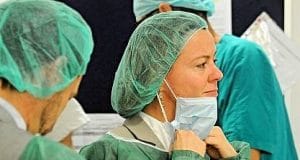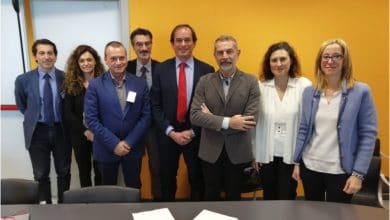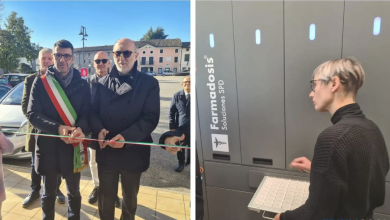
Dettori (Cgil) to RadioArticle1: "There is a progressive definancing of the system, which in ten years has seen the loss of 65,000 beds, the reduction of 4,000 employees, including 15,000 doctors, and the elimination of 35,000 precarious workers”
"I confirm the negative opinion on the 2018 budget law as regards health, due to the fact that the cuts decided last year are reiterated, with a progressive definancing of the system, which in the last decade has seen the loss of 65,000 hospital beds, the reduction of 40,000 employees, of whom 15,000 are doctors, as well as the elimination of 35,000 precarious workers, with the average age of the staff rising at 54 years old". So Roxana Dettori, confederal secretary of the CGIL, to the microphones of RadioArticle1.
 Minister Lorenzin said that, by virtue of the rise in GDP, in the end there will be more resources for the national health service. “For us, it is the litmus test that current funds are insufficient and we don't even know if the hypothesis of increasing the cost of cigarettes to find 500 million more will pass or not. Not only. The superticket remains, at most it will be remodulated region by region, ending up with increasing inequalities in our country. It is an unjust tax, which weighs on sick people and renders citizens' right to health, which is guaranteed by the Constitution, uncollectable. For this reason, we will continue the mobilization undaunted and in January we will decide how. In addition to health care, there is the social issue, where we are fighting for the approval of a law on non-self-sufficiency. At the base, there is the fact that the Ministry of Economy cannot decide the country's health policies, but the government must do it”, said the union leader.
Minister Lorenzin said that, by virtue of the rise in GDP, in the end there will be more resources for the national health service. “For us, it is the litmus test that current funds are insufficient and we don't even know if the hypothesis of increasing the cost of cigarettes to find 500 million more will pass or not. Not only. The superticket remains, at most it will be remodulated region by region, ending up with increasing inequalities in our country. It is an unjust tax, which weighs on sick people and renders citizens' right to health, which is guaranteed by the Constitution, uncollectable. For this reason, we will continue the mobilization undaunted and in January we will decide how. In addition to health care, there is the social issue, where we are fighting for the approval of a law on non-self-sufficiency. At the base, there is the fact that the Ministry of Economy cannot decide the country's health policies, but the government must do it”, said the union leader.
“Furthermore, another very worrying aspect, the clogging of emergency rooms and hospitals. Instead of starting a plan to remodel the existing health network, we proceeded only to cut beds and services, closing and merging hospitals in the area. All of this has resulted in the current chaos, with grueling queues facing citizens. Despite the age-old shortages of personnel and the increasingly onerous workloads, the remaining employees manage to guarantee assistance to the sick at the price of great sacrifices: just think that on average, working hours have risen from 36 (per contract ) to 44 hours a week, with overtime becoming daily practice and often not even paid anymore due to lack of resources. Given the situation, we have asked to cut some general managers and managers and encourage the NHS to the detriment of insurance companies”, continued the trade unionist.
 “It would then always be valid and effective a real battle against tax evasion. Here too, we have made a proposal which provides for the recruitment of staff to the Revenue Agency. In the end, if done right, we could get the money for not one, but two Finance! Thus providing incentives for workers and rehabilitating citizens' right to health and ultimately relaunching the national economy, because if the NHS works, for every euro spent, one and a half euros enter, if we consider everything around it, in the form of investments and revenues: pharmaceuticals, health facilities, contracts, canteens, laundry, etc.”, continued the confederal secretary.
“It would then always be valid and effective a real battle against tax evasion. Here too, we have made a proposal which provides for the recruitment of staff to the Revenue Agency. In the end, if done right, we could get the money for not one, but two Finance! Thus providing incentives for workers and rehabilitating citizens' right to health and ultimately relaunching the national economy, because if the NHS works, for every euro spent, one and a half euros enter, if we consider everything around it, in the form of investments and revenues: pharmaceuticals, health facilities, contracts, canteens, laundry, etc.”, continued the confederal secretary.
Public and private can coexist in healthcare, but some guidelines must be clear: "The public is the object that has the task of planning, organizing and guaranteeing health services for all. While the private is a tool of integration, that is where the public fails to reach – I am thinking of rehabilitation which is practically non-existent in the NHS and is guaranteed through public agreements stipulated with private individuals – takes over and integrates, according to the dictates imparted by the Regions, those responsible for health plans, without however entering into competition with the public, as the old Catholic health system does and secular. Also because competition is to the detriment of users, while good integration is exclusively in favor of citizens and their health needs. But, I repeat, the first objective remains that of increasing resources for the NHS and breaking down the inequalities between people who take care of themselves and those who no longer do it due to lack of money. Knowing that the more funds available, the less expenses are generated, making the population safer than health”, concluded the CGIL exponent.
Related news: Joint Farmindustria-Assogenerici complaint for the U-turn to Montecitorio on the anti-counterfeiting directive
Fimmg Piedmont, Venice: 2600 mmg retired in 15 years.
Enpam-Eurispes report: over 10,000 doctors 'emigrated' in 10 years





